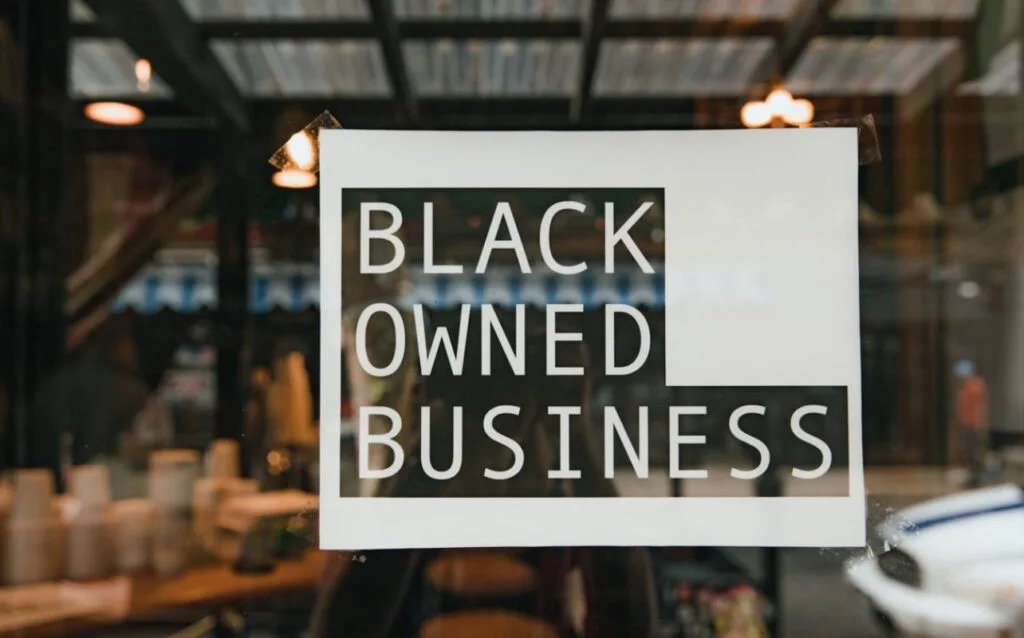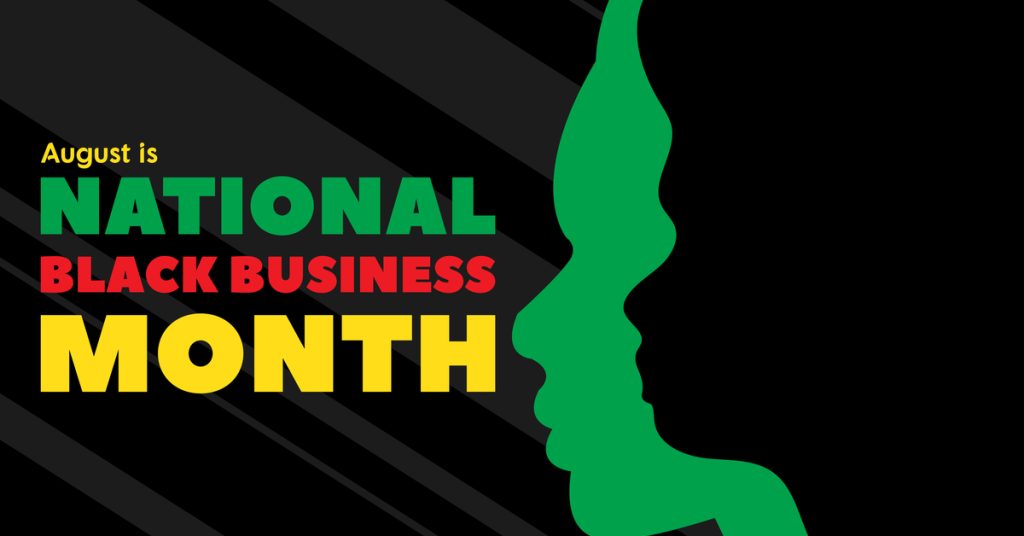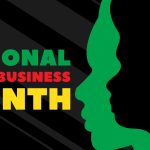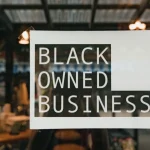August heralds the arrival of Black Business Month, an annual celebration of Black entrepreneurship’s indelible impact on America’s economy and culture. Across cities like Atlanta, Washington, D.C., Houston, Chicago, and New Orleans, communities use this month to spotlight the innovations, resilience, and legacy of Black-owned businesses. Despite recent policy threats and the chilling climate from the Trump administration, data and stories from across the country reveal a community undeterred — forging ahead with remarkable entrepreneurial zeal.
A Legacy of Innovation and Perseverance
Black entrepreneurship has long been a beacon of hope, independence, and community upliftment. From the bustling beauty shops of Chicago’s South Side to the tech startups of Atlanta, Black business owners have turned adversity into opportunity. This innovative spirit dates back to icons like Madam C.J. Walker, whose pioneering haircare business thrived in the face of obstacles, and persists today in the form of thriving restaurants, bookstores, consulting firms, and wellness brands.
History shows that Black-owned businesses often emerged out of necessity — exclusion from mainstream economic channels fostered self-reliance and tightly knit economies within Black communities. These businesses became cornerstones for neighborhoods, offering jobs, leadership, and cultural identity.
Trump-Era Policy Shocks: What’s at Stake for Black Businesses
In 2025, the Trump administration’s economic and trade policies have sent tremors through the minority business landscape. Recent tariffs on imports have disproportionately raised costs for industries where Black businesses predominate — retail, restaurants, apparel, and electronics. In cities like New Orleans, community anchors like the Community Book Center are grappling with higher costs for imported goods, forcing tough decisions about pricing and inventory.
Policy rollbacks have also targeted diversity, equity, and inclusion (DEI) programs, stripping support for minority-owned businesses and undercutting supplier diversity initiatives in both federal and corporate procurement. Federal job cuts and the weakening of agencies supporting minority business owners have further threatened key pillars of Black economic progress.
Despite this, Black business owners, especially in hubs like Houston and Atlanta, have responded with ingenuity. Some are streamlining product offerings, leveraging local supply chains, and developing creative partnerships to weather the storm. The message remains clear: while these policy headwinds are real, they have failed to deter the entrepreneurial drive coursing through Black America.
The Entrepreneurial Boom: Data from 2025
This year’s Black Business Month coincides with a national surge in Black entrepreneurship, even in the face of systemic challenges. According to recent studies:
-
Over half of all new minority-owned employer businesses created since 2017 are Black-owned, with about 70,000 new entities formed during that period.
-
Black-owned businesses contributed $212 billion in revenue to the U.S. economy in 2022 and paid more than $61 billion in salaries.
-
Nationally, about 3% of U.S. businesses are Black-owned, but the number is rising, especially in metropolitan centers popular for Black entrepreneurs.
-
Black women have emerged as a dynamic force, leading 3.5 million businesses that collectively generate more than $60 billion in annual revenue.
Cities like Atlanta, Washington, D.C., Indianapolis, Houston, and New Orleans are home to vibrant Black business districts, supported by active chambers of commerce, business incubators, and a young, ambitious population. In Atlanta, for example, more than 7% of all businesses are Black-owned, and the area leads the nation in Black business density.
City Spotlights: Hubs of Black Business Resilience
Atlanta, Georgia
Often dubbed the “Black Mecca,” Atlanta’s entrepreneurial energy is palpable — from downtown eateries to tech startups in Midtown, the city boasts thousands of Black-owned ventures. Local organizations like the Atlanta Black Chambers and Morehouse College’s entrepreneurship programs continue to nurture and inspire new generations of business owners.
Washington, D.C.
With a legacy rooted in the civil rights movement, the nation’s capital remains a powerhouse for Black entrepreneurship. Nearly 8% of D.C. businesses are Black-owned, and institutions like Howard University foster a pipeline of entrepreneurial talent ready to tackle systemic challenges.
Houston, Texas
In Houston’s Third Ward and beyond, Black businesses anchor neighborhoods with everything from soul food restaurants to home improvement shops. Events like Black Market Houston connect entrepreneurs, showcase products, and build networks.
Indianapolis, Indiana
Recent years have seen exponential growth in Black-owned companies in Indianapolis, with strong support from local business coalitions and a high startup survival rate. Community-driven initiatives ensure Black businesses have access to mentorship and resources, despite persistent funding disparities.
New Orleans, Louisiana
New Orleans stands out for its community-focused businesses like the Community Book Center, which double as cultural spaces and economic engines. Here, music venues, bookstores, and eateries face unique pressures from rising costs but remain committed to sustaining neighborhood vibrancy.
The Impact of Black Women Entrepreneurs
Black women are starting businesses at record rates. From food trucks in Miami to hair salons in Dallas and PR agencies in Los Angeles, they are changing the landscape of American entrepreneurship. Black women-owned firms now represent nearly half of all Black-owned businesses, employing hundreds of thousands nationwide.
Despite generating billions in revenue and driving sector growth, they confront hurdles such as lower loan approval rates and systemic barriers to capital. Yet, their perseverance continues to be a source of inspiration and economic empowerment for communities nationwide.
Challenges and Opportunities: Navigating Tariffs and Policy Rollbacks
Tariffs have emerged as a regressive tax system, disproportionately affecting lower-income populations who spend a higher percentage of their income on essentials. For Black business owners, whose customer bases often overlap with these demographics, passing on rising costs is untenable, especially in cities where poverty rates remain high.
The elimination of DEI incentives and supplier diversity programs adds another layer of difficulty, reducing access to government contracts and corporate opportunities. However, cities like Chicago and Detroit have seen local coalitions band together, advocating for fairer access, hosting “Shop Black Saturdays,” and offering community support through mentorship events and pitch competitions.
The Enduring Entrepreneurial Spirit
Despite policy setbacks and economic uncertainty, the entrepreneurial spirit within Black business communities remains unshaken. Surveys indicate that over three-quarters of Black professionals aspire to start their own businesses in the coming year. Many cite passion, the need for work-life balance, fulfillment, and career advancement as motivating factors.
This surge in entrepreneurial interest is not just an economic trend. It reflects deep cultural pride, the continued pursuit of equity, and an unwavering belief in self-determination.
Celebratory Activities and Community Initiatives
This month, gatherings across New York, Los Angeles, Kansas City, and Multnomah County, Oregon, showcase Black-owned businesses in unique ways. Weekly events range from culinary showcases and networking mixers to pitch competitions and educational panels. Social media campaigns and resource toolkits are helping Black businesses amplify their voices and connect with broader audiences.
Initiatives like “Shop Black Saturdays” encourage community members to spend intentionally at Black-owned establishments, strengthening local economies and celebrating cultural richness.
Looking Ahead: Building On Momentum
As Black Business Month unfolds, the lessons of 2025 are clear. Policy threats, while significant, have not crushed the entrepreneurial aspirations of Black Americans. Increased networking, crowdsourcing, local partnerships, and investment in talent continue to propel businesses forward.
Grassroots advocacy, innovative community financing, and the relentless optimism of entrepreneurs are building new economic pathways. The month serves as both a reflection on the struggles faced and a celebration of triumphs achieved. For cities like Detroit, Charlotte, Boston, and Dallas, the future holds promise as more Black entrepreneurs put down roots and shape urban economies.
Conclusion: The Unbreakable Will of Black Entrepreneurs
Black Business Month is more than a calendar event; it’s a showcase of a legacy, a reminder of the strength in unity, and an invitation for all Americans to champion equity and diversity. In 2025, even amid the chilling effects of Trump-era policies, Black entrepreneurs in cities from Denver to Miami, Indianapolis to Richmond, refuse to be sidelined. Their ingenuity, resolve, and entrepreneurial energy promise a future where Black businesses are not simply surviving threats — they are thriving, inspiring, and leading.
For customers, policymakers, and communities alike, supporting Black-owned businesses this August and beyond is not just an act of patronage. It’s an affirmation of the fundamental American principles of opportunity, inclusion, and resilience. The entrepreneurial spirit of Black America, unbothered by turbulence and policy uncertainty, is scripting stories of success that will echo for generations.








Leave a Comment